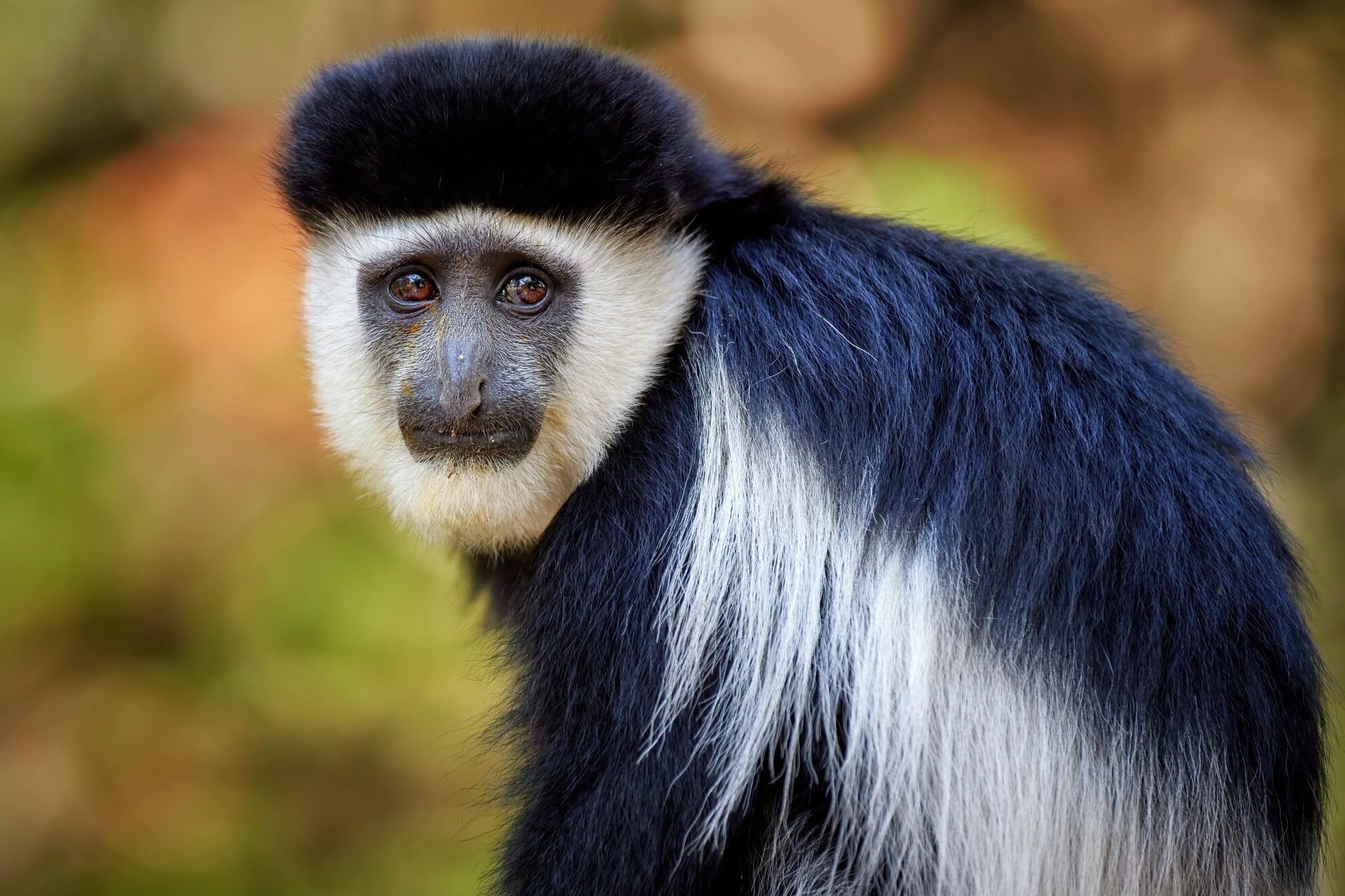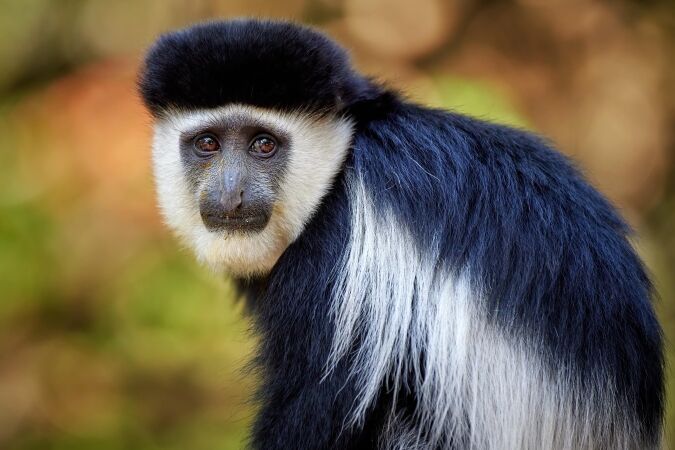

The Guereza Colobus (Colobus guereza), also known as the Abyssinian Colobus, Mantled Colobus, or the Black and White colobus, is an Old-World Monkey species found in various African countries. They are found in East and West African countries, including Equatorial Guinea, Cameroon, Uganda, Kenya, Ethiopia, Chad, Tanzania, and Nigeria. Nine subspecies are recognized.
The Abyssinian Colobus prefers a forest habitat with a close, permanent water source. These Old-World monkeys spend most of their time in the densely populated forest trees, although they are known for spending more time on the ground than other colobus species.
The Abyssinian Colobus lives in small troops of up to 25 individuals. These troops consist of one or two adult males, up to 6 females, and their offspring. Differing troops generally do not mix as they can be quite aggressive. They communicate through vocalizations, movements, and gestures, with males often sounding a roar in the early mornings to demonstrate both dominance and territorial boundaries within the region.
The Abyssinian Colobus is omnivorous with a diet of arthropods, leaves, fruits, and seeds. Predators, such as chimpanzees, large Birds of Prey, and Leopards, prey on this mammal.
After a 142-161 day gestation, the female gives birth to one offspring, which has a pure white coat. As it grows and matures, the darker coloring becomes apparent, usually at around 3-4 months.
Their IUCN status is Least Concern.
Name:
Nanger soemmerringii
Male Weight:
17-29 pounds
Male Length:
22-24 inches
Range:
Native to most of West and East Africa
Mating:
November/December
Gestation Period:
142-161 days
Life span:
20 years
The Guereza Colobus is black with a mantle of white fur running down its sides and on its back. Its tail is black, with white appearing towards the tip. It has whiskers and a short white beard.
While it is sometimes seen as an opportunistic African hunt, the Guereza Colobus is most often hunted through the spot-and-stalk method. This can be quite challenging, as these elusive monkeys camouflage themselves within the high, dense forest trees.
Abyssinian Colobus hunting safaris can be quite challenging, as there is often limited visibility in the dense forest vegetation. The animal spends most of its time in the tree tops, making it difficult to spot when colobus hunting in Africa. They are quite alert and are quick to hide in response to perceived danger.
While some regions see the colobus as opportunistic prey, it is considered a unique trophy in many areas, with its attractive black and white pelt ensuring an exceptional trophy after a successful hunting safari.
A small to medium caliber rifle is recommended, such as a .243, .270, or .308. Ensure that shot placement is accurate so as not to damage the striking pelt or trophy as a whole.
Search from our range of Hunts across various popular destinations in Africa.
Find A Hunt